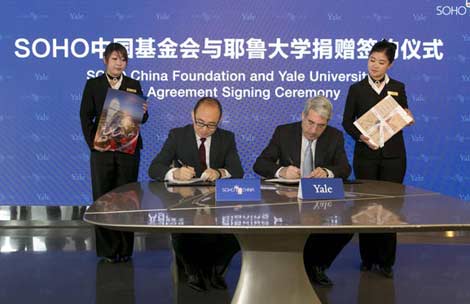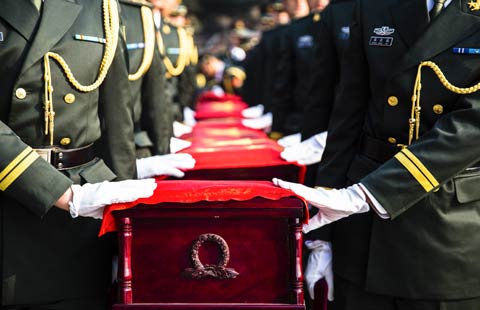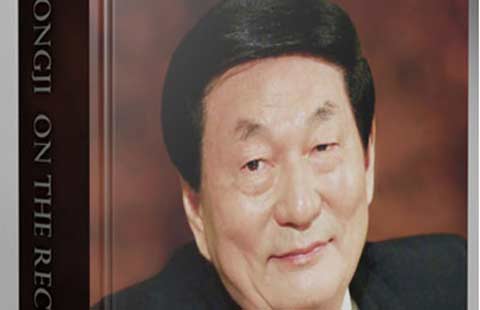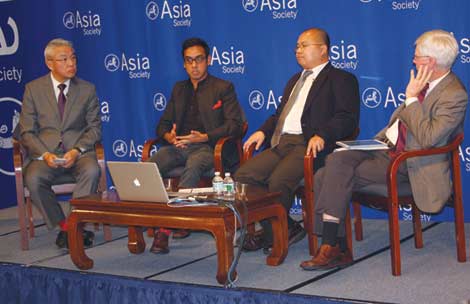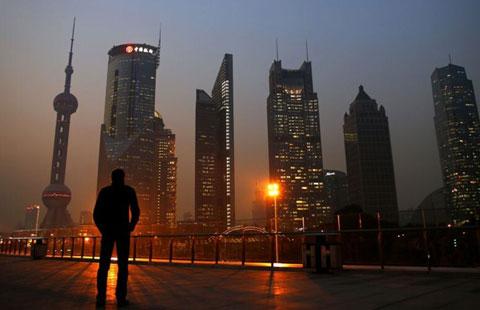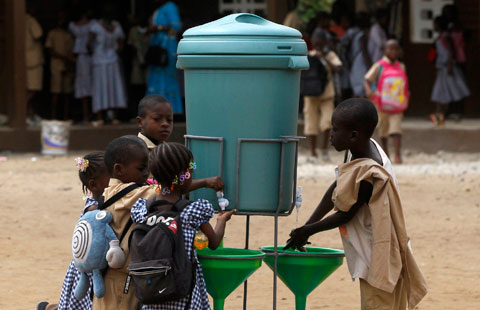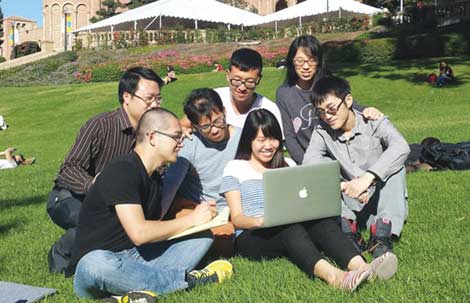US, EU and Iran to bridge gaps in nuclear talks
Updated: 2014-07-15 11:07
(Xinhua)
|
||||||||
 |
| Iran's Foreign Minister Javad Zarif (L) holds a bilateral meeting with US Secretary of State John Kerry (R) on the second straight day of talks over Tehran's nuclear program in Vienna, July 14, 2014. [Photo/Agencies] |
VIENNA -- The United States, Iran and the European Union are having a trilateral meeting on Monday in Vienna after the bilateral meeting between US Secretary of State John Kerry and Iranian foreign minister Mohammad Javad Zarif, a senior US Official said.
Racing with the clock, the intensive talks are trying to seize the historical opportunity for reaching a comprehensive solution to put an end to the decade-old Iranian nuclear row.
Following the foreign ministers' meeting on Sunday, Kerry and Zarif held bilateral talks in Vienna to discuss a possible deal by the deadline July 20 when the Geneva interim deal reached November last year is to expire.
Under the interim deal, Iran agreed to suspend some sensitive nuclear activities in exchange for limited sanction relief by western powers in a duration of six moths to buy time for the negotiation aimed at a comprehensive solution to resolve the issue.
The meetings of foreign ministers from P5+1 group (five permanent members of the United Nations Security Council -- the United States, Britain, France, Russia and China, plus Germany) on Saturday failed to bridge the gaps in the talks, but noted the talks are in the critical moment, and would continue working on the issue.
Significant gaps remain on some key issues especially over Iran's uranium enrichment plan.
Iran's supreme leader Ayatollah Ali Khamenei said on Tuesday Iran needs 190,000 separative work units (SWUs) for uranium enrichment, but western states want Iran to only keep a much lower enrichment capacity.
Kerry warned earlier this month that if there is not enough progress in the talks by July 20, the United States may not allow them to continue.
"Obviously we have some very significant gaps still," said Kerry earlier when he arrived in Vienna Sunday to join the talks. "So we need to see if we can make some progress."
Iran's deputy negotiator Abbas Araqchi told Al-Alam television, "On practically all the important issues differences persist and we have not been able to narrow them."
Araqchi said Iran was ready to walk away from the talks if the world powers pushed on with "excessive" demands.
Kerry will "gauge Iran's willingness" and urge his Iranian counterpart Javad Zarif to make "critical choices" during the second day of meeting, a senior State Department official said.
Iran currently has installed 19,000 centrifuges, of which 10,190 are operating.
- Kerry, top Iranian diplomat to hold in-depth talks
- Kerry hunkers down for 'lengthy' Iran talks
- Iran eases demands for nuclear capacity at talks
- Iran eases demands for nuclear capacity at talks
- China to attend fresh round of talks on Iran
- Iran rushes to save endangered Asian cheetahs from extinction
- Iran sending drones, equipment to Iraq
- Netanyahu urges Washington to 'weaken' Iraq, Iran
- Xinjiang publishes anti-terror brochures
- Security pact sealed with Afghanistan
- President Xi encourages international cultural exchanges
- Premier Li: China willing to help Afghan infrastructure
- Chinese FM: China, Asia-Pacific become community of shared destiny
- Foreign minister remarks on possibility of China-Japan summit
Most Viewed
Editor's Picks

|

|

|

|

|

|
Today's Top News
VW defends safety of recalled New Sagitar
Former premier makes Hurun philanthropists list
Xinjiang publishes anti-terror brochures
SOHO endows $10m to Yale
Cook and Ma talk about partnership
Language a barrier to healthcare for Asian Americans
China businesses need innovation: VC
Security pact sealed with Afghanistan
US Weekly

|

|
